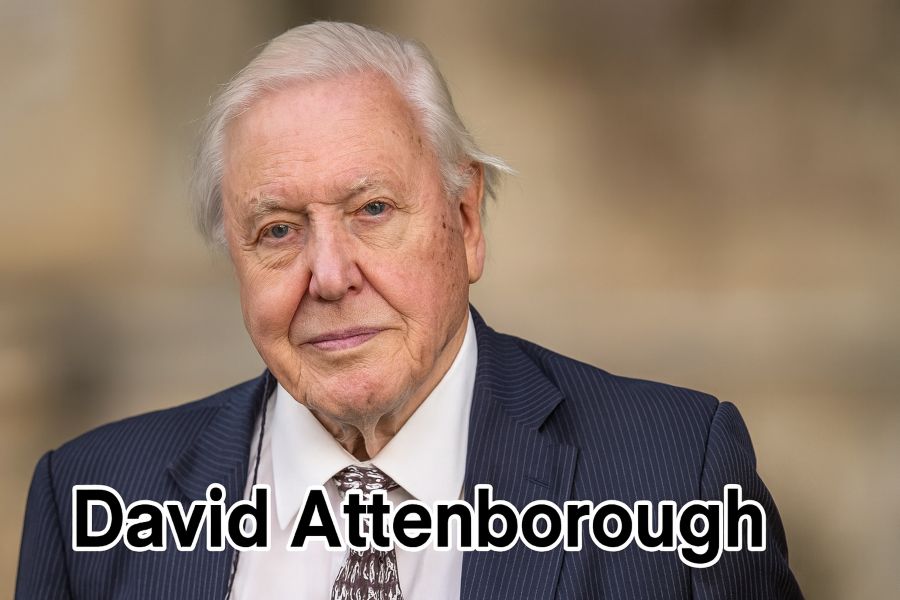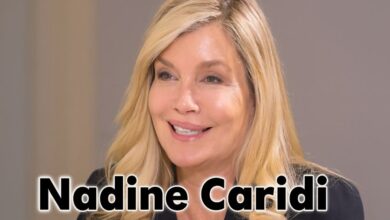David Attenborough: The Legendary British Host and Biologist Who Changed How the World Sees Nature
An inspiring story of knowledge, passion, and perseverance that reshaped humanity’s understanding of the planet.

Table of Contents
ToggleIntroduction
Sir David Attenborough is one of the most respected figures in the world of broadcasting and natural history. As a British host and biologist, his voice and vision have become symbols of truth, science, and environmental awareness. For over seven decades, he has inspired millions to appreciate the beauty of life on Earth and to act responsibly toward nature. His documentaries not only educate but emotionally connect audiences with the planet’s most breathtaking wildlife.
Born in 1926, David Attenborough’s journey from a curious boy in Leicester to the most famous natural historian on Earth is a story of passion, discipline, and lifelong dedication. His work as a broadcaster, writer, and filmmaker has redefined how the world perceives science and conservation. Today, at 99 years old, he continues to use his platform to raise awareness about the urgent need to protect our planet.
Quick Bio
| Full Name | Sir David Frederick Attenborough |
|---|---|
| Date of Birth | 8 May 1926 |
| Age (2025) | 99 Years |
| Birthplace | Isleworth, Middlesex, England |
| Nationality | British |
| Profession | Broadcaster, Biologist, Writer |
| Education | Clare College, Cambridge – Natural Sciences |
| Marital Status | Widowed (Jane Elizabeth Ebsworth Oriel, m.1950–1997) |
| Children | Robert and Susan Attenborough |
| Religion | Agnostic |
| Height | 5 ft 10 in (1.78 m) |
| Net Worth (2025) | Approx. $15 Million |
Early Life and Education
David Attenborough was born in Isleworth, England, and raised in Leicester, where his father was the principal of University College. Growing up surrounded by books, ideas, and curiosity, young David developed a fascination for nature. His childhood was filled with exploring fossil collections and watching wildlife in the fields near his home. This curiosity laid the foundation for a career that would one day captivate the world.
He attended Wyggeston Grammar School and later earned a scholarship to Clare College, Cambridge, where he studied Natural Sciences. His time at Cambridge shaped his scientific mindset and deepened his understanding of biology. After completing his degree, he served in the Royal Navy for two years before joining the BBC in the early 1950s, marking the beginning of a remarkable broadcasting career.
Start of Career and BBC Journey
David Attenborough’s professional journey began when he joined BBC Television in 1952 as a trainee producer. His first major success came with the groundbreaking show Zoo Quest (1954), which combined wildlife footage from around the world with educational storytelling. This program introduced audiences to the wonders of nature in an entirely new way.
As his career progressed, he became Controller of BBC Two in 1965, where he introduced innovative programming and played a crucial role in launching color television in the UK. Despite his success as an executive, his passion for exploration and storytelling drew him back to filmmaking. In 1972, he returned to the field to pursue his true calling—documenting life on Earth.
Rise to Global Recognition
In the following decades, David Attenborough produced some of the most influential natural history series ever made. His Life series—including Life on Earth (1979), The Living Planet (1984), and The Trials of Life (1990)—transformed wildlife documentaries into cinematic masterpieces. Each episode showcased the complexity, struggle, and beauty of living organisms in their natural environments.
Through these works, he became the face of global nature broadcasting. Later projects like The Blue Planet, Planet Earth, and Planet Earth II expanded his reach even further, blending cutting-edge technology with emotional storytelling. These series not only entertained but educated millions about ecosystems, climate change, and biodiversity, making him one of the most trusted scientific voices of modern times.
Achievements and Honors
Over his lifetime, David Attenborough has received countless honors. He was knighted in 1985 for his services to broadcasting and natural science and was later appointed to the prestigious Order of Merit in 2005. He is also a Fellow of the Royal Society (FRS), an honor reserved for the most distinguished scientists.
He holds multiple BAFTA Awards across every major format—black-and-white, color, HD, 3D, and 4K—making him the only British host to achieve this feat. His contributions to education, science communication, and environmental awareness have earned him admiration from world leaders, scientists, and young people alike.
Recent Work and Environmental Advocacy
Even in his late 90s, Sir David continues to be active. In recent years, he has become a global voice for environmental conservation, urging humanity to take immediate action against climate change and species extinction. His documentary A Life on Our Planet (2020) served as both a warning and a message of hope, emphasizing that collective effort can restore the planet’s balance.
In 2025, he released “Ocean with David Attenborough,” a stunning exploration of marine life and the importance of preserving the world’s oceans. The program combines scientific insight with breathtaking visuals, showcasing his unmatched ability to communicate complex issues in a relatable way.
Legacy and Influence
David Attenborough’s legacy extends far beyond television. His work has inspired generations of scientists, environmentalists, and ordinary people to appreciate the natural world. Over forty species have been named in his honor, including plants, reptiles, and even a prehistoric bird. The British research vessel RRS Sir David Attenborough also carries his name, symbolizing his lifelong service to science and exploration.
He changed the way humanity sees nature—not as something distant, but as a part of our shared existence. His calm, authoritative voice and poetic narration continue to educate millions, proving that communication and compassion can coexist with science.
Net Worth and Professional Impact
As of 2025, David Attenborough’s estimated net worth is around $15 million. His earnings primarily come from his documentaries, books, and production company. However, his true wealth lies in his contribution to global awareness and education. He has spent a lifetime creating art that serves science, not profit, and that dedication makes him a unique figure in modern history.
His ability to blend emotion with evidence has made environmental issues mainstream, turning complex scientific debates into accessible knowledge for all.
Conclusion
David Attenborough stands as a living legend—a British host, biologist, and environmentalist who has bridged the gap between science and humanity. His life’s mission has been to celebrate and protect the planet, a mission that continues to inspire billions. His wisdom, humility, and determination remind the world that understanding nature is not just a scientific pursuit—it is a moral responsibility.
His legacy will forever remind future generations that one person’s voice, when guided by truth and love for nature, can echo across the entire world.
FAQs
Q1: What is David Attenborough famous for?
He is best known for his nature documentaries and television series that explore wildlife, ecosystems, and environmental conservation.
Q2: What is David Attenborough’s nationality?
He is British and represents the finest traditions of British broadcasting and science communication.
Q3: How old is David Attenborough in 2025?
He is 99 years old, born on 8 May 1926.
Q4: What is David Attenborough’s net worth?
His estimated net worth is around $15 million as of 2025.
Q5: What is his latest documentary?
His most recent production is Ocean with David Attenborough (2025), focused on the conservation and recovery of marine life.



